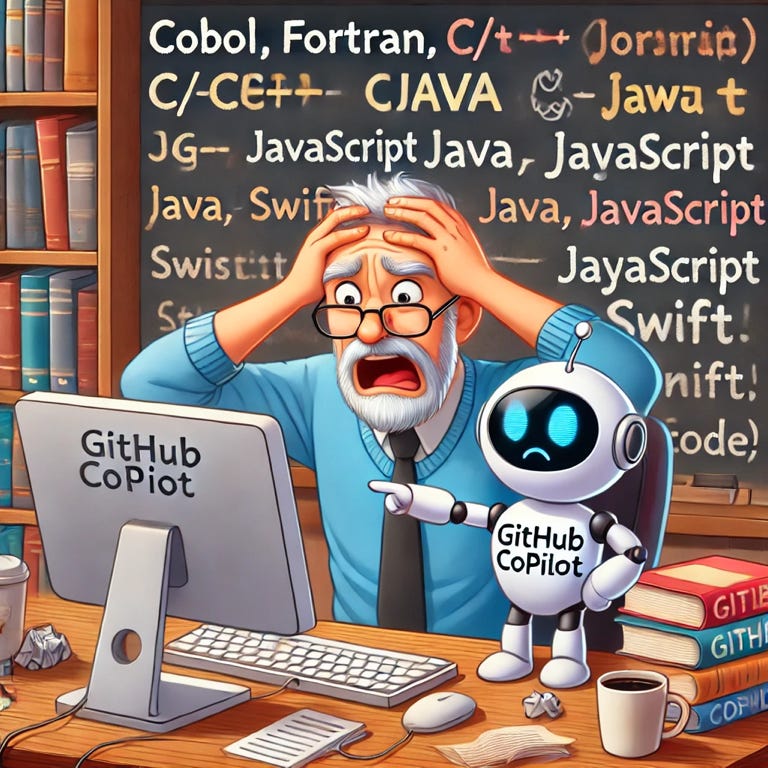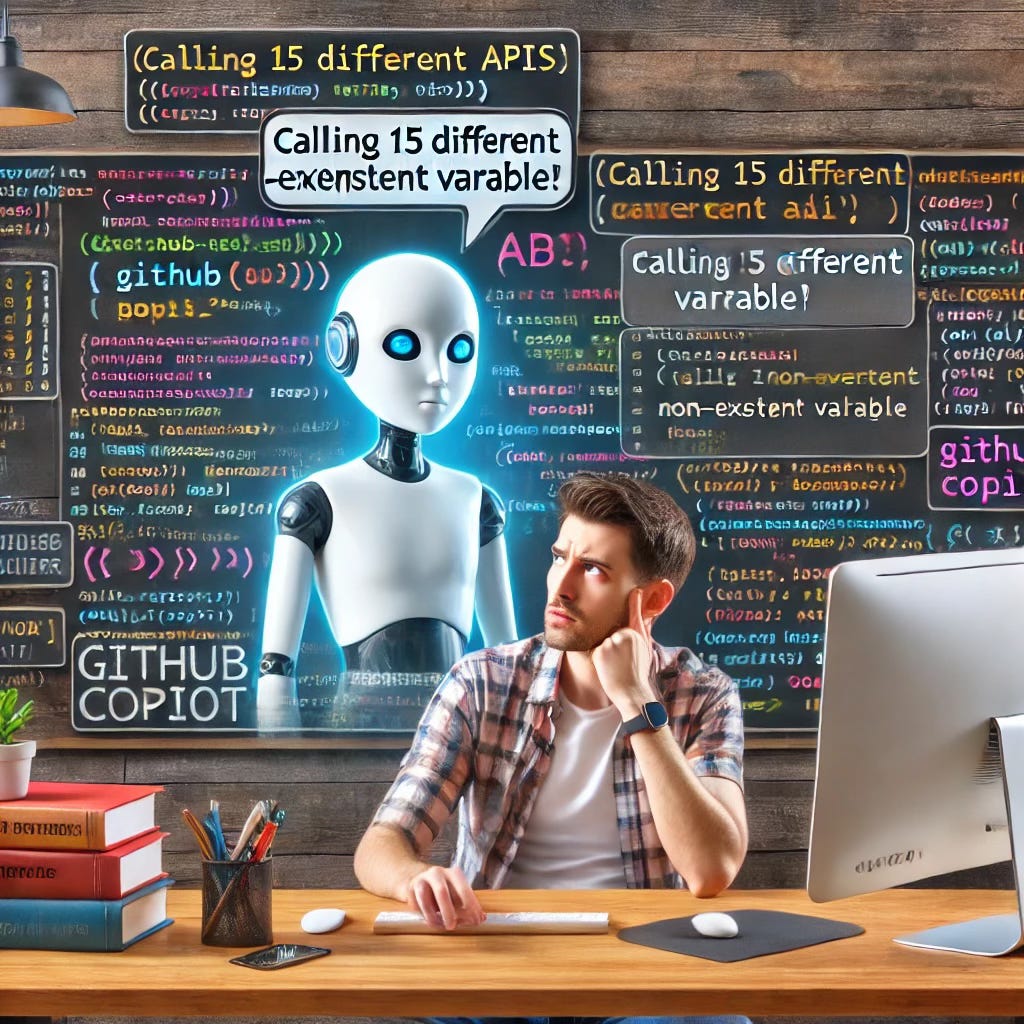Ah, the life of a coder who’s fluent in all programming languages. You know, like those mythical creatures: the unicorn, the dragon, and that one guy who actually enjoys writing in Cobol. Yeah, that’s not me. But I know enough about coding to keep me sharp with the latest trends in programming languages and tools. I am not an expert at Developer Experience for no reason (for non-native speaker, double negation, our worst enemy to comprehension of the English language and coding errors).
I started in the glory days of Cobol and Fortran, when “debugging” meant walking to a server room the size of a small apartment, with a punch card in hand, and praying the machine didn’t catch on fire. And oh, the beauty of C/C++! Writing a pointer incorrectly was like setting a booby trap for yourself, and then gleefully waiting to step into it five hours later when the program crashes for absolutely no reason. The term “getting java” meant getting a lot of coffee while waiting. Good times.
Fast forward a few decades, and I’ve mastered the newer kids on the block: Java, JavaScript, Swift, the works. But just as I was basking in the glow of being a walking encyclopedia of programming languages, in swoops GitHub Copilot.
Oh, Copilot. My AI-powered assistant, my sidekick, my persistent electronic nag. It’s like a backseat driver that’s always there—except instead of saying “you missed your turn,” it’s more like, “Hey, how about I generate some code that’s completely wrong and then gaslight you into thinking it’s your fault?”
I’ll be coding something simple—let’s say, a JavaScript function. I start typing, and suddenly Copilot interrupts with “Hey! What if instead of writing a simple if statement, I turn this into a 500-line mess that requires four libraries you’ve never heard of?” Why, Copilot, why?! I’m writing a loop, not reinventing the internet!
I’ve seen bad code before. I’ve written bad code before. (Hello, Fortran and Swift, I’m looking at you.) But this—this is a new level of absurdity. Copilot seems to be on a personal mission to out-bug even my worst C++ pointers from 1996.
I feel like an old schoolmaster watching a rebellious student. “No, Copilot, we’re not calling 15 different APIs to check the weather in Palo Alto when all I need is a ‘Hello World’ script!”
But it got me thinking… What’s in a language, anyway? Sure, I know most of them, from the old and grumpy Cobol (hey Assembly) to the trendy, caffeinated Java, and everything in between. But at the end of the day, isn’t it all just telling a machine what to do? Some just need more coffee breaks (I’m looking at you, Java).
Does it really matter if I’m coding in Swift or C++, when Copilot’s going to suggest code that looks like it was written by a confused alien anyway? I could be speaking in hieroglyphics, and Copilot would still pop in with “Did you mean to call this non-existent variable? No? Are you sure?”
Programming languages, like human languages, are just a means of communication. Some are poetic and flowery, like Python. Some are terse and direct, like C (and let’s face it, C would probably give you the side-eye for using a semicolon “incorrectly”). And some, like JavaScript, are like the overly enthusiastic intern who means well but causes chaos everywhere they go.
And then there’s Cobol… an ancient language, designed to be readable by accountants, which explains why every line of code looks like it’s trying to file a tax return.
So yeah, I’m fluent (or was) in some of them. And you know what I’ve realized? It doesn’t matter how many languages I know if I’ve got GitHub Copilot at my side, tirelessly “helping” me with its wonderfully misguided suggestions. It’s like having an eager intern who’s read the first chapter of every coding book and is dead set on showing you what they think they know. But it is a student who is learning very fast. And I hope it will truly live up to its potential.
In the end, what’s in a language? A lot of syntax, a lot of quirks, and apparently, an AI assistant who’s determined to keep me humble.







